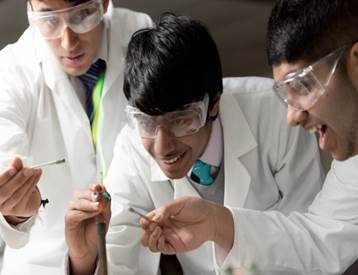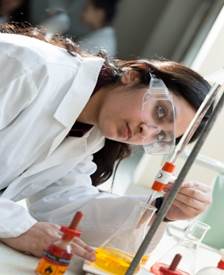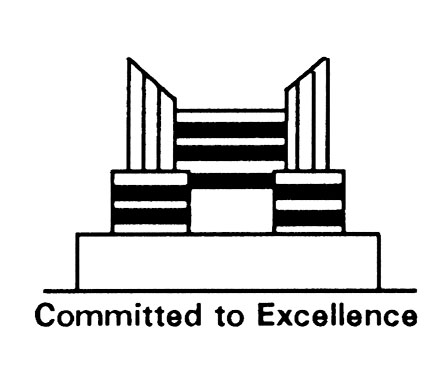Why study Chemistry?
Chemistry is the science that underpins many things that we take for granted in today’s society. From medicines and energy resources to plastics and computer chips, the application of chemistry dominates the world around us. Chemistry may also hold the key to winning the battle against global warming.
Course content/Outline:
| A Level Units | Assessment |
|---|---|
|
Module 1: Development of Practical Skills in Chemistry Practical work is an integral part of studying Chemistry and most lessons will include a practical element. |
Three written examination papers and ‘Practical endorsement in Chemistry’ which is reported separately and does not contribute to the overall A2 grade.
|
What career opportunities are there?
The list is endless. Research chemist, Medicine, Pharmaceutical scientist, Dentistry, Chemical engineer, Pharmacy, Lawyer, Patent attorney, Material scientist, Teacher, Forensic scientist, Food scientist, Accountant, Veterinary sciences, Investment banker, Analytical chemist, Science journalist, Medical sales representative.
Syllabus: Chemistry A
Examination Board: OCR
More information: Miss E Morcom / Mr D Simon






